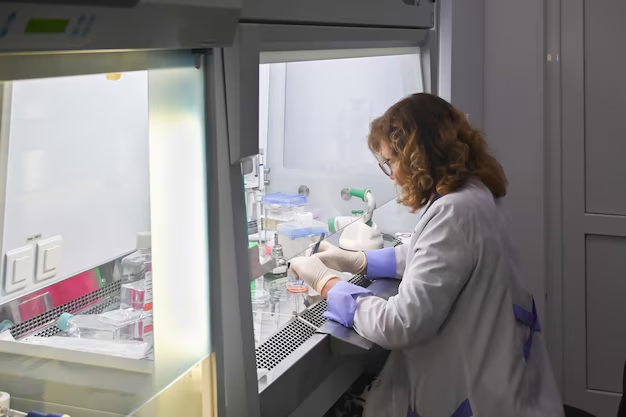Preserving Urine for Analysis: How Long Can It Last in the Refrigerator?
Picture this: you’re preparing for a medical test, and you need to collect a urine sample beforehand. Among various recommendations, preserving the urine sample becomes an important concern. But, how long can urine last in the refrigerator without losing its integrity and usefulness for testing? Let's explore this topic in detail, discussing not only the primary question but also delving into related aspects, such as storage techniques, potential pitfalls, and best practices.
The Basics of Urine Storage
Urine samples are often used in medical settings to analyze and diagnose various health conditions. Proper storage is crucial to maintain their viability for accurate test results. When refrigerated, urine can remain stable for a certain period, but various factors influence this timeframe.
Why Refrigerate Urine?
Refrigeration slows down bacterial growth, which can otherwise compromise the sample's integrity. Medical professionals often recommend refrigerating urine samples to ensure they retain accurate biochemical properties, which are essential for tests.
General Timeframe for Refrigerated Urine
Generally, urine samples can be kept in the refrigerator for up to 24 hours. Beyond this, the risk of bacterial contamination and chemical decomposition increases. The sample might not provide reliable test results if stored longer than this recommended period.
Factors Affecting the Longevity of Urine in Refrigeration
While the standard timeframe is up to a day, several factors can alter how long a urine sample remains viable in refrigeration.
Type of Container
Use an airtight container: An airtight, sterile container minimizes exposure to contaminants and preserves the sample better. Proper sealing prevents foreign substances from altering the urine’s chemical composition.
Temperature Consistency
Maintain a steady refrigerator temperature: Keeping urine at a constant temperature, ideally between 2°C and 8°C (36°F and 46°F), is crucial. Temperature fluctuations can lead to changes in sample integrity.
Initial Condition of the Urine
Freshly collected samples last longer: Immediately refrigerating a fresh urine sample ensures minimal bacterial growth and chemical changes. Delaying can lead to deterioration.
Common Misconceptions About Urine Storage
Misconception 1: Urine Can Be Stored Indefinitely
Urine cannot be kept indefinitely, even in refrigeration. Chemical changes and bacterial growth will occur over time, rendering the sample useless for testing.
Misconception 2: Adding Preservatives is Always Beneficial
Preservatives can extend urine shelf life but are not universally recommended for all types of urine tests. Always follow medical guidance specific to the test you're preparing for.
How to Store Urine Properly: Practical Steps
Here are some practical tips for preserving urine to ensure its longevity and effectiveness for analysis.
Use the Right Container: Opt for a clean, sterile container that seals tightly.
Label Clearly: Always label the container with the date and time of storage to monitor the timeframe accurately.
Avoid Contamination: Ensure the container and tools you use are sterile to prevent contamination.
Quick Refrigeration: Transfer the sample to the refrigerator as soon as possible after collection.
Limit Exposure: Minimize opening and closing the container, which could introduce contaminants.
Related Considerations for Urine Storage
Special Tests Requiring Different Conditions
Some tests may require samples to be processed or stored under different conditions. Always refer to specific guidelines related to the type of analysis being conducted.
Methods to Extend Urine Shelf Life
In some instances, urine samples might need preservation for extended periods. Options include freezing or using preservatives, but these methods should only be employed based on medical advice.
Potential Risks of Improper Urine Storage
Failure to adhere to recommended storage practices can lead to unreliable test results. Contaminated or deteriorated samples might necessitate recollection and potentially delay diagnosis and treatment.
Ensuring Safety and Hygiene
Maintaining hygiene is crucial during collection and storage. Avoiding any contact with the inner section of the container lid and keeping the surrounding area clean can prevent contamination.
Using Safe Packaging
Always store urine samples in containers designed for this specific purpose. Household containers may not provide the necessary sterility and security.
Environmental Considerations and Disposal
Proper disposal of urine and its containers is important for environmental safety. Once a sample is no longer viable, dispose of it according to local regulations for biohazard waste.
Key Takeaways for Safe and Effective Urine Storage
- 🗓️ Timeframe: Refrigeration is effective for up to 24 hours.
- 🧊 Temperature: Consistency is key—keep it cool at 2-8°C (36-46°F).
- 🧴 Containers: Use airtight, sterile containers for best results.
- 🚫 Avoid Delays: Quick transfer to the fridge ensures sample integrity.
- 🧼 Hygiene: Maintain hygiene to prevent contamination.
Remember, these guidelines serve to preserve urine samples for medical examination. They do not substitute for professional medical advice, nor should they be used for self-diagnosis.
Ultimately, whether you're preparing for a laboratory test or conducting a scientific study, understanding how to store urine properly can ensure the integrity of your samples and, more importantly, the reliability of your results. Always consult with medical professionals for specific instructions related to your testing needs. By following the outlined practices, you can be confident in preserving your samples effectively.
By utilizing these strategies and knowledge, you can manage urine storage efficiently and ensure accurate testing results when you need them.

